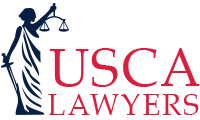About the TCPA
What is the TCPA?
TCPA stands for the Telephone Consumer Protection Act of 1991. It is labeled as 47 U.S.C. § 227 in the Code of Laws of the United States. The TCPA sets rules for companies or people making solicitations over the phone. These rules are federal law, so they apply anywhere within the United States and also apply if the caller is outside the U.S. but the recipient is within the U.S.
What Does the TCPA Do?
The TCPA restricts certain conduct by anyone making solicitations over the phone. The main purpose of the TCPA is to protect individuals from unwanted solicitations made by automated calling systems. When phone solicitations are made by these automatic systems, it is informally called a “robocall.”
Robocalls to Certain Recipients
The first major area the TCPA governs is making robocalls to certain recipients. The law makes it illegal to make a call using automatic dialing systems, artificial voices, or prerecorded voices to any emergency line. The term “emergency lines” includes 911 lines, fire protection lines, law enforcement lines, and emergency lines belonging to hospitals, medical physicians and their offices, health care facilities, and poison control centers. The TCPA also prohibits robocalls to a patient’s room in hospitals, clinics, and elderly homes. It is also prohibited to robocall cell phone numbers, pager numbers, or any other number where the recipient is charged for the call.
Robocalls Without Consent
The other major area the TCPA governs is making robocalls to people without their consent. Generally, it is illegal to make a robocall to a residential phone line without the consent of the recipient. This rule is subject to a few minor exceptions.
Additional Rules
The TCPA also has rules about the use of fax machines, computers, and similar devices. Using any of these devices to make unsolicited robocalls is illegal under the TCPA. However, like most of the legal field, there are exceptions to the rule. Unsolicited robocalls to people that already have a business relationship with the caller are okay, and will not be in violation of the TCPA. Also, if the robocaller obtains the recipient’s fax number or computer address through the recipient’s voluntary communication of the information, then the robocall is not in violation of the TCPA.
Lastly, a minor rule of the TCPA prohibits making robocalls that tie up multiple phone lines of a business.
How Does the TCPA Affect Me?
Unsolicited phone calls from advertisers are not uncommon and most people find them annoying or inconvenient to say the least. When you pick up the phone and it’s a prerecorded message or robotic voice, then it shows that the caller didn’t even care enough to put a real person on the line. This can cause further annoyance. At that point, the average person will hang up the phone, chalk it up to poor business practices, and move on. However, businesses that robocall you without your consent are actually violating federal law. You have legal options. Filing a lawsuit over an annoyance might seem like overblowing the situation, but consider the fact that robocallers could be doing the same thing to hundreds of other people. You can stop these unsolicited robocalls.
If you have been robocalled without your consent, please contact us using the form on this page or call us at 213-212-2202. You may be part of a class action lawsuit.

